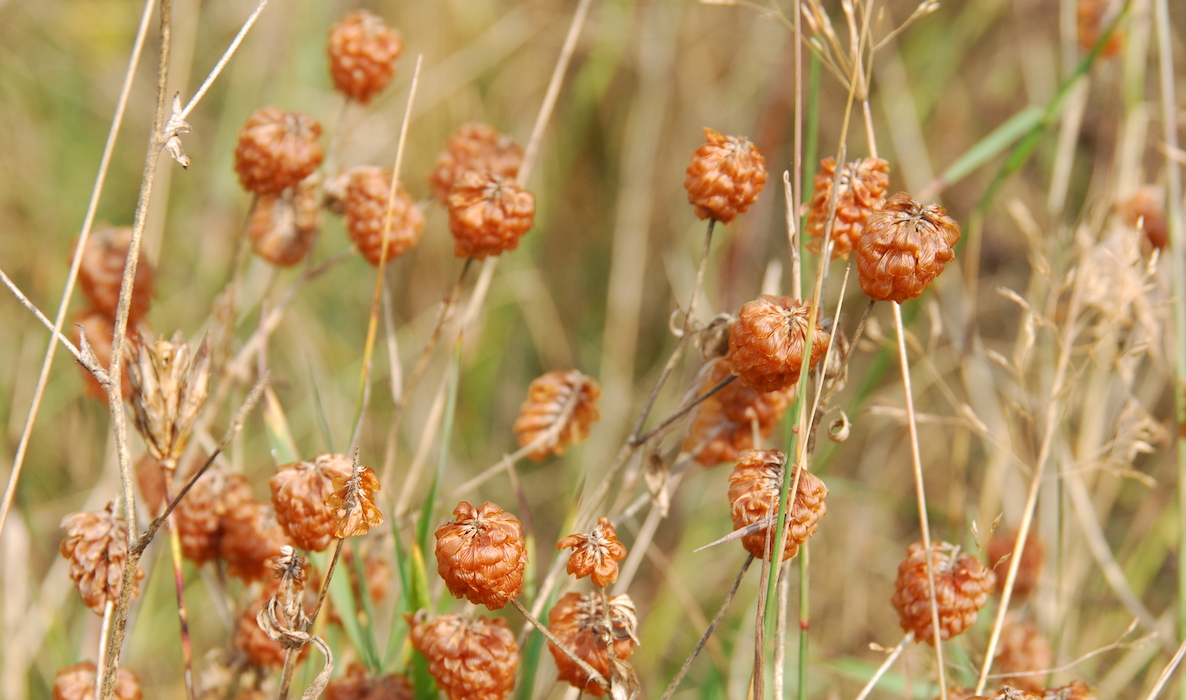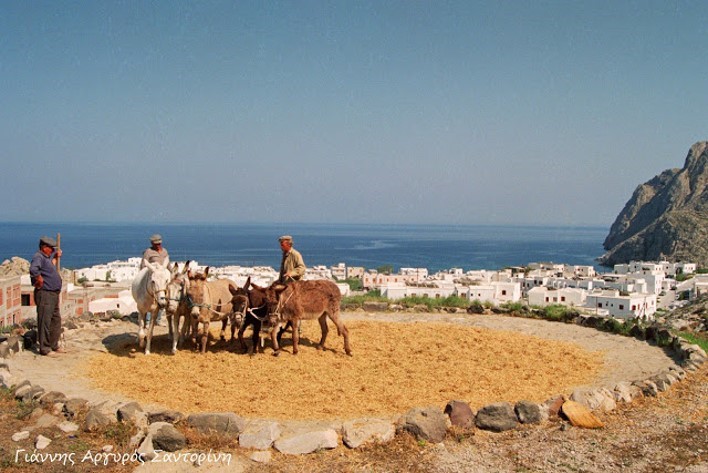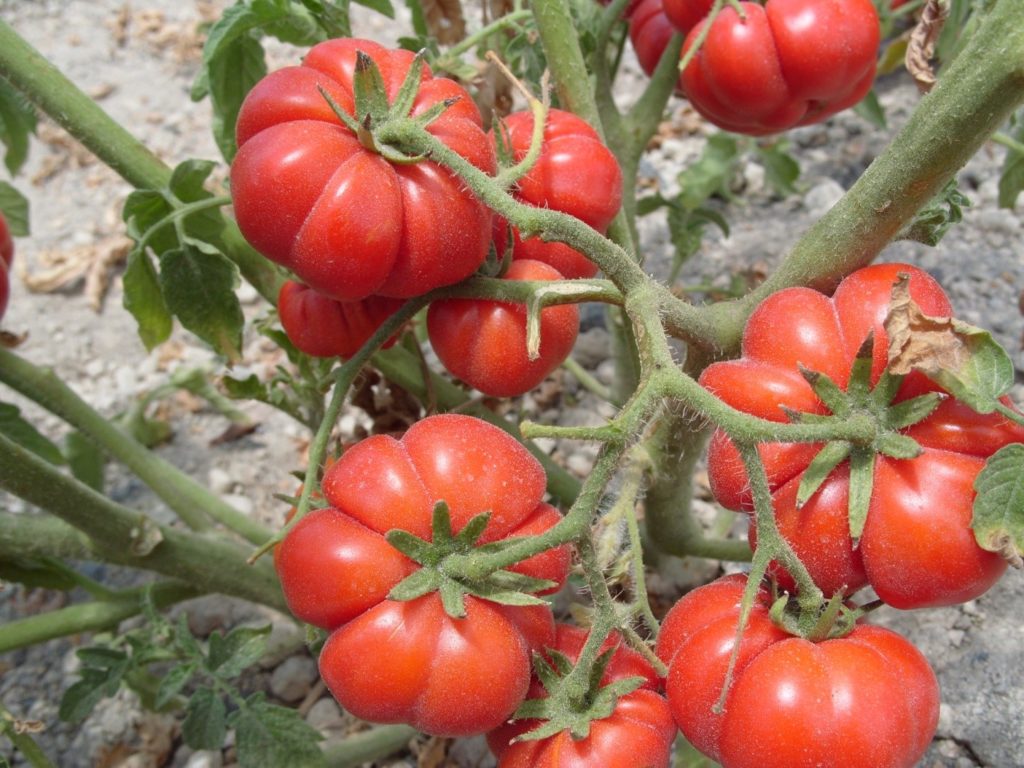School Group Visits Universitat Politècnica de València:
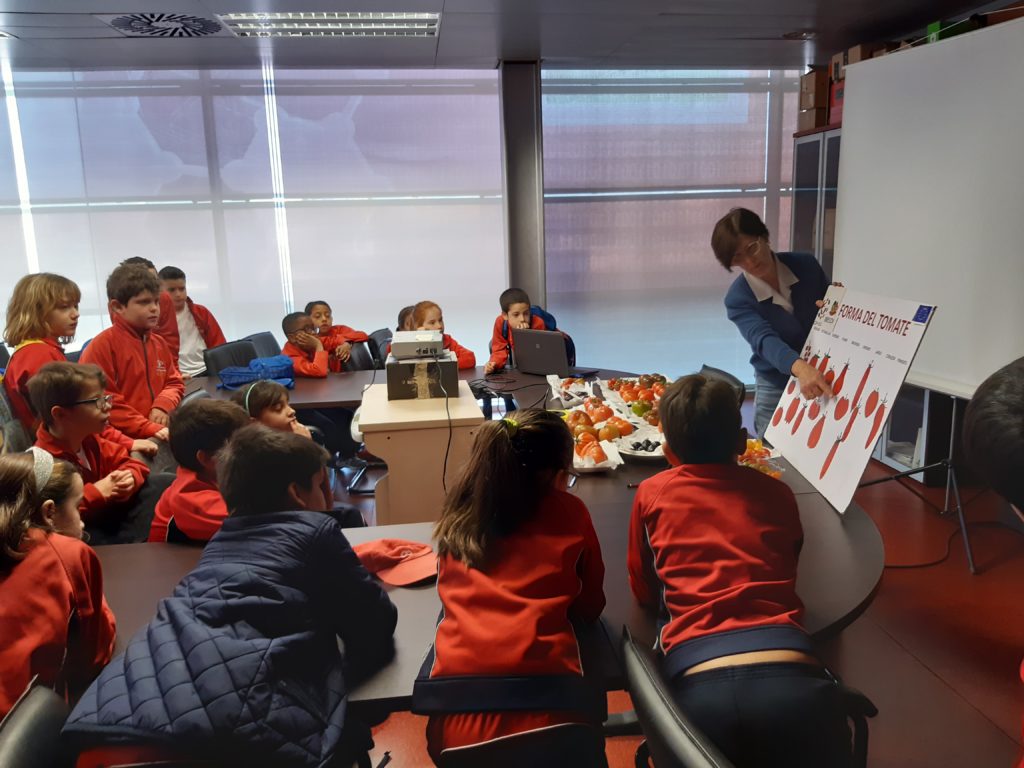
On Wednesday 26 February 2020 colleagues from the genetic department of Farmer’s Pride project partner the Universitat Politècnica de València enjoyed the visit of 20 children (ages 8-9) from Colegio Claret Valencia Benimaclet primary school. Curious minds patiently listened and learned about the diversity of tomatoes and the importance of conserving diversity. They also had a dynamic visit to the germplasm bank and greenhouse trials where they saw the practical effect of conserving diversity for sustainable agriculture.
The children were all ears as they absorbed important information about seed banks and crop wild relatives. The hands on approach to this visit gave this class the chance to have a better understanding of their food, where it comes from and the importance of conserving diversity for sustainable agriculture. Hopefully this experience is instilling some passion in learning about and preserving landraces and the importance of seed banks for our future. And by the smiles on all of their faces, its safe to say they had a great time learning it too!
The Farmer’s Pride project aims to improve our knowledge of how best to look after these resources in the future, and teaching future leaders is a good first step.
Conserving landrace grapes, small size tomatoes (‘Tomataki’) and fava beans (‘Arakas for fava’) on the Greek island of Thera (Santorini)
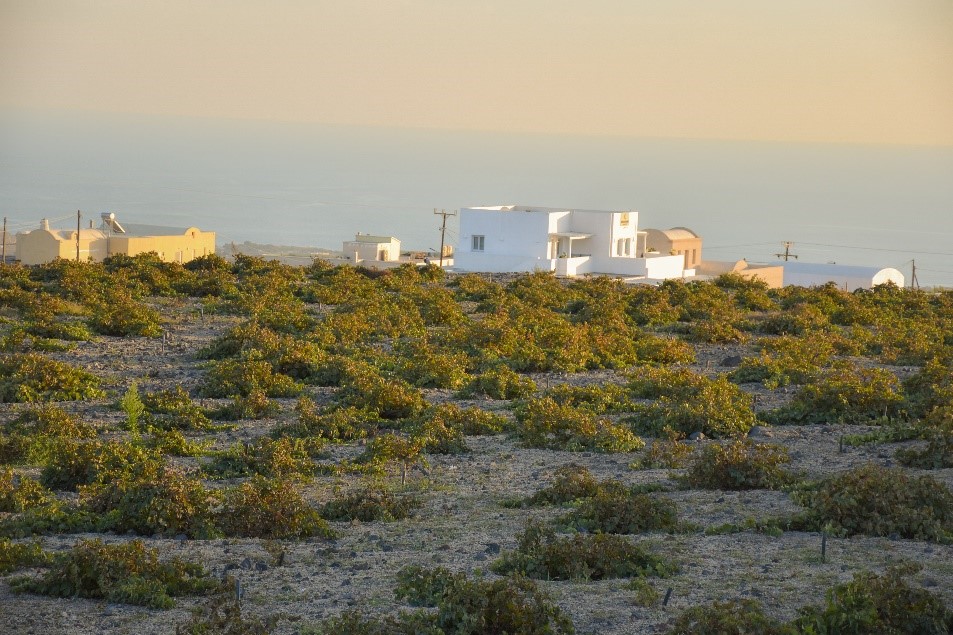
Participants at the October 2019 Farmer’s Pride workshop in Santorini, visited the Union of Santorini Cooperatives, SantoWines, to learn about their work to conserve the island’s traditional landrace crops of grapes, fava beans (‘Arakas for fava’) and small size tomatoes (‘Tomataki’). Plants on the volcanic island of Santorini are not irrigated artificially and rainfall is rare. Water comes from the natural humidity and the sea mist which is absorbed by the volcanic soil. This method, known as dry farming, results in a low-yield production that creates unique and flavourful fava, tomatoes, grapes and wines. From sowing to harvesting, all of the work in the fields is done by hand. In areas of severe slope, the farmers have created terraces, built with lava stones, known as “pezoules” in order to provide easier access to the vineyards, to facilitate the cultivation and to maximise their capacity to absorb rain water.
Wine production dates back thousands of years, approximately around the 3rd millennium BC. Today, the Assyrtiko landrace white wine grape is still grown without the use of a vine training system in approximately 1200 hectares of family-owned vineyards. The vintners have invented a distinct way of training the vines, called “kouloura”. The vines are kept close to the ground and are given a spiral, basket shape that anchors the grapes and protects them from the strong winds. SantoWines works to safeguard the traditional local cultivation, producing highest quality Protected Designation of Origin (PDO) Santorini wines and products as well as promoting sustainable agriculture development. Some years ago, Farmer’s Pride partner the Hellenic Agricultural Organization-DEMETER, together with the Aristotle University of Thessaloniki and the Union of Santorini Cooperatives, started a project to improve the important landraces ‘Tomataki Santorinis’ and ‘Arakas for Fava Santorinis’, though a study of its variability, pedigree, and analytical selection. Accessions of ‘Tomataki’ and ‘Arakas for Fava Santorinis’ are kept, under long term storage conditions in the gene bank of DEMETER and at Santowines.
Right: ‘Tomataki Santorinis’ cultivation on the pumice soil of Santorini (Greece). photo Ekaterini Traka-Mavrona
